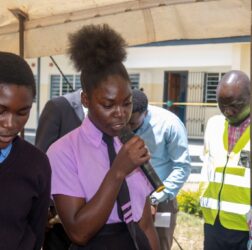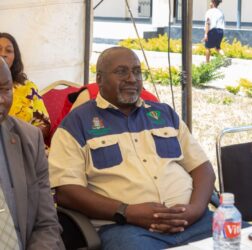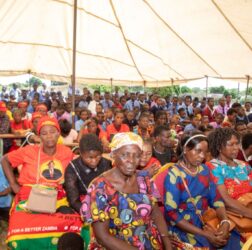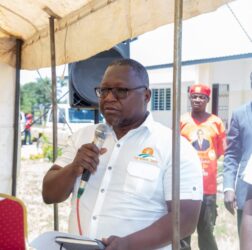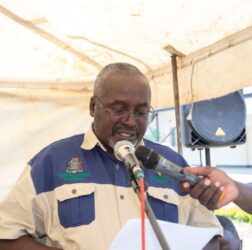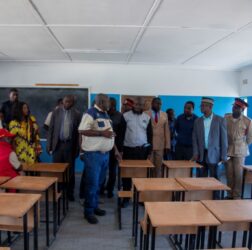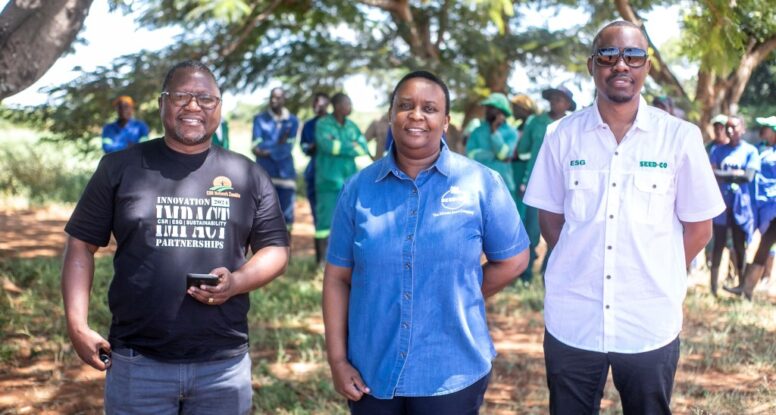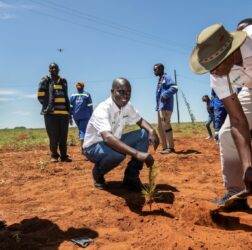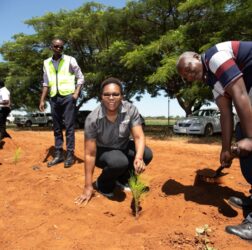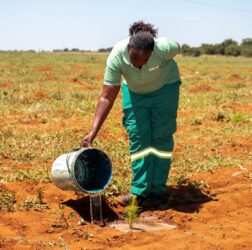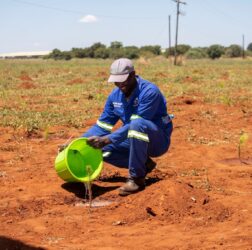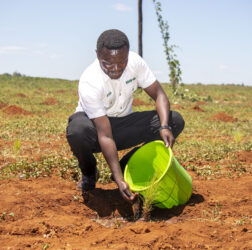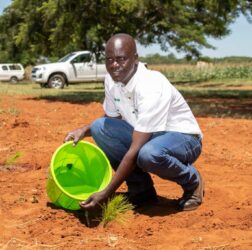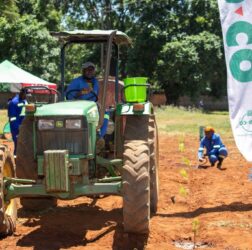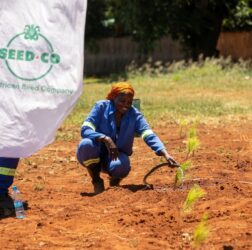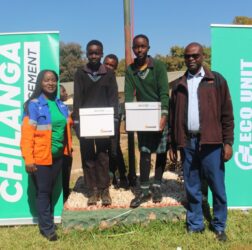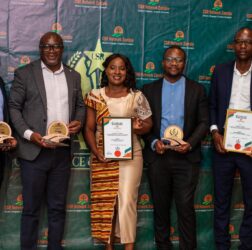Amidst a vibrant atmosphere filled with cultural performances and heartfelt expressions of gratitude, Lumpuma Day Secondary School in Chief Lumpuma’s chiefdom, Lufwanyama district, stood as a beacon of hope and promise on the 25th of March 2024. This colorful occasion marked the official handover of a newly constructed secondary school by Grizzly Mining Limited, a momentous event witnessed by esteemed guests, community leaders, educators, parents and eager learners.

Grizzly Mining’s unwavering commitment to corporate social responsibility (CSR) was exemplified through the construction of this educational infrastructure, comprising a fully furnished 1-by-4 classroom block, modern computer facilities, an ablution block, and provision of clean drinking water through a solar-powered borehole feeding into the school water reticulation system. Through its CSR initiatives, the company has been helping build classroom blocks in other schools within Lufwanyama, in the hope of increasing learning space and improving the quality of education. Of note also is the aspect of children that cover long distances of between 5 to 10 Km to get to the nearest school.
During the opening stages of the handover ceremony, a poignant moment unfolded as a group of learners from the school stepped forward to share a heartfelt poem titled “For us to learn…” Their words resonated deeply with the audience, articulating the fundamental necessities they require for a conducive learning environment. “For us to learn, we need classrooms, desks, safe drinking water, we need toilets…” they recited. Their poignant verses underscored the transformative power of education and highlighted the aspirations of the youth to realize their full potential. As learners from nearby schools also showcased their talents through cultural dances and songs, the air was filled with optimism and the promise of a brighter future.
A representative from the office of the Area Member of Parliament commended Grizzly Mining for the work done, emphasizing the importance of school infrastructure in motivating learners, increasing enrollments and contributing to the provision of quality education. He assured the gathering that the MP is fully committed to seeing more of such developments in Lufwanyama, as a way of driving educational progress.
“The school represents more than just bricks and mortar; it symbolizes opportunity, empowerment and the promise of a brighter future,” stated Lee Muzala, Executive Director of CSR Network Zambia, emphasizing the profound impact of investing in education. “As we celebrate this milestone today, let us reaffirm our collective commitment to supporting initiatives that drive positive change and contribute towards sustainable development.”
Government representatives echoed this sentiment, highlighting the vital role of education in shaping the nation’s future and commending Grizzly Mining for its partnership in providing essential infrastructure. With increased learning space, there is optimism that Lumpuma Day Secondary School will nurture future leaders and contribute to the nation’s development.
Grizzly Mining reiterated its dedication to the community’s well-being, pledging to continue supporting educational initiatives and infrastructure development. Mr. Davy Phiri, the Group CSR Manager, reiterated, “Today, as we officially hand over this secondary school, let it be known that our commitment does not end here.” He outlined plans for future projects aimed at improving access to education and enhancing the quality of life for community members. The Lumpuma Day Secondary School project value is K6,500,000, underscoring Grizzly Mining’s substantial investment in the betterment of Chief Lumpuma’s chiefdom and beyond.
Acknowledging the collaborative effort between Grizzly Mining and the local community, the Guest of Honor, Mr. Justin Mwalikwa, emphasized the importance of partnerships in national development and pledged government support for similar initiatives. “Partnership is very key in national development, and thus we will continue to reinforce it in order to build a Zambia where education will thrive for improved living standards of our people,” stated the Guest of Honor.
Representing the Provincial Education Standards Officer (PESO), Mr. Nyambe Sefulo shared hopes that Lumpuma Day Secondary School would contribute to the emergence of future leaders. “With increased learning space, I hope that Lumpuma School will be one of those that will contribute to the emergence of another Levy Mwanawasa, another Lesley Mbula and many other sons and daughters of the Lamba-land that rose to national prominence in the past,” he remarked.
The Council Vice Chairperson of Lufwanyama District Council, Mr. Gilbert Mukobola commended Grizzly Mining for its unwavering commitment to social responsibility and emphasized the role of education in mitigating social ills such as early marriages and alcohol abuse among youths. “Investment in education is pivotal in shaping the future of our community,” remarked the Vice Chairperson.
As the ceremony drew to a close, His Royal Highness Chief Lumpuma reflected on the significance of the occasion, expressing gratitude for the collaborative efforts that made the school’s construction possible. In his closing remarks, he urged the community to safeguard the infrastructure for future generations. “The ball has now been passed on to all those responsible, including the Lumpuma community, to ensure that the infrastructure is looked after well,” Chief Lumpuma emphasized. He further emphasized the importance of education in shaping the future of the chiefdom and warned against early marriages and encouraged parents to send the girl-child to school, reaffirming his commitment to ensuring access to quality education for all.
The handover of Lumpuma Day Secondary School represents more than just the inauguration of a new building; it embodies the collective aspirations and resilience of a community determined to break the cycle of poverty and transform its future through education. As the doors of opportunity swing open for the youth of Lumpuma, the path to a brighter tomorrow beckons, illuminated by the promise of knowledge, empowerment and social progress.








